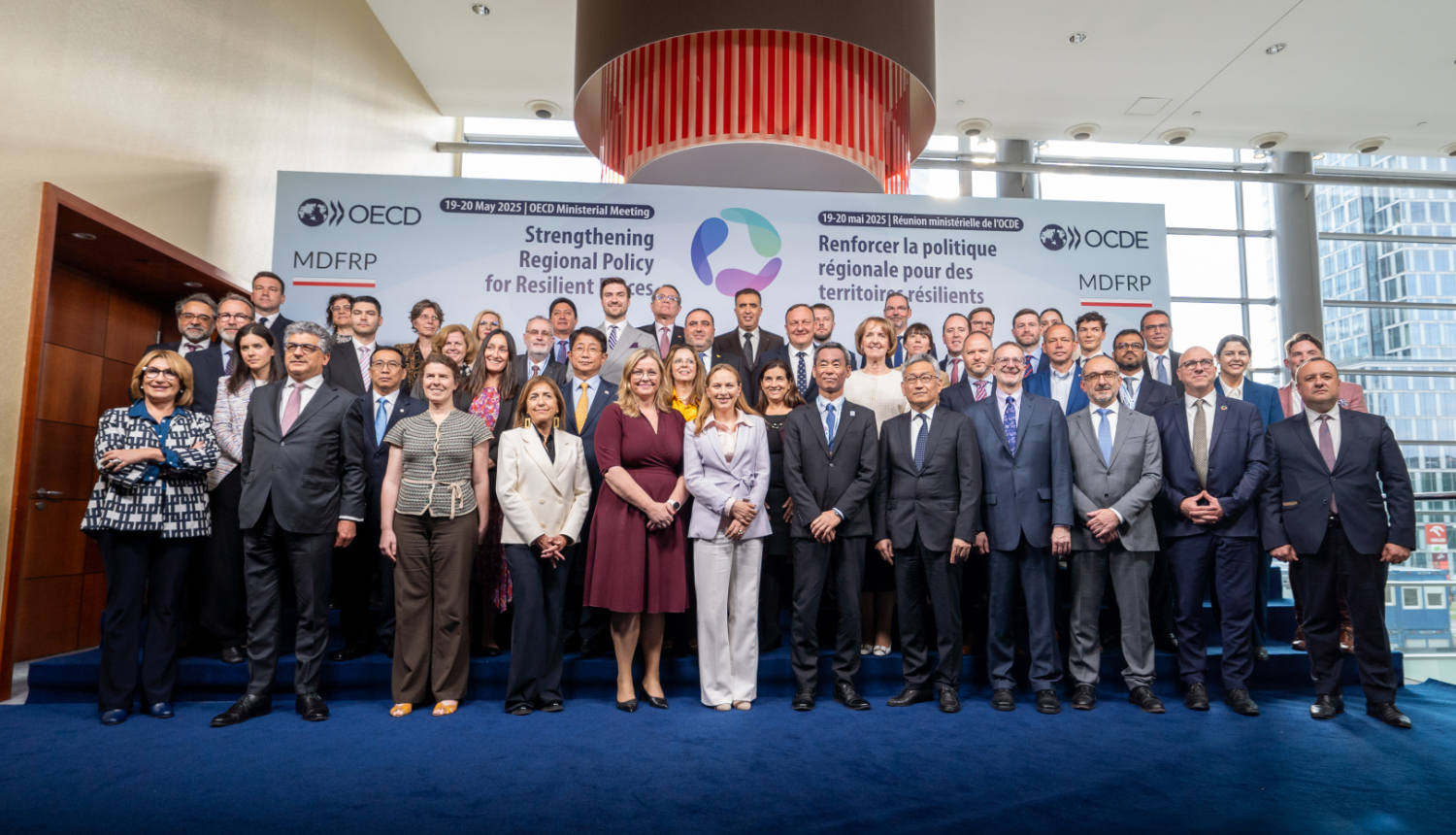From 19 to 21 May 2025, Minister for Smart Administration and Regional Development Inga Bērziņa is participating in high-level meetings in Warsaw, where ministers from the Organisation for Economic Co-operation and Development (OECD) and the European Union (EU) will discuss regional resilience, digitalisation, and cohesion policy.
On 20 May, the Minister will take part in and address fellow ministers at the OECD Regional Development Policy Committee Ministerial Meeting. She will emphasise the need for targeted support to OECD member countries bordering Russia and/or Belarus, taking into account the consequences of Russia’s full-scale war of aggression against Ukraine. These regions face specific geopolitical, demographic, and economic challenges that require tailored responses.
The Minister will also highlight Latvia’s experience in smart governance, digital data utilisation, and strengthening regional development. Latvia advocates for making digital transformation and data-driven policy a core element of territorial resilience and inclusive development. Digital transition and regional policy are not merely technical issues — they are matters of well-being, competitiveness, and future opportunities.
Also on 20 May, Minister Bērziņa is scheduled to meet with Lamia Kamal-Chaoui, Director of the OECD Centre for Entrepreneurship, SMEs, Regions and Cities. The meeting will focus on Latvia’s policy priorities and OECD work on regional attractiveness, forestry, rural development, and climate policy.
A report by the host country, Poland, will be presented during the OECD Ministerial Meeting.
On 21 May, the Minister will participate in the informal meeting of EU ministers responsible for cohesion policy, territorial cohesion, and urban development. The discussion will focus on shared policy challenges, with particular attention to the territorial approach – adapting policies to the specific needs of different areas – and strengthening the territorial dimension at EU, national, and regional levels.
Minister Bērziņa will underline that coordination between regional and sectoral policies is crucial for effective regional development. Latvia applies the territorial perspective in sectoral planning documents to ensure that the diverse needs and development opportunities of different territories are reflected. One example is the Action Plan for Economic Growth and Security in Latvia’s Eastern Border Region 2025–2027, which was developed through close coordination with sectoral ministries.
Latvia’s position is that additional support is needed for Member States bordering Russia and Belarus, particularly in the context of the next EU Multiannual Financial Framework. Long-term measures beyond 2027 are required, including additional EU funding beyond the standard cohesion envelope for eastern border regions, and compensation for reduced national development budgets caused by increased defence spending. Support measures should reflect the specific socioeconomic conditions of these border areas. In Latvia’s case, the supported territory should be defined at the NUTS 2 level. Additional support should also be foreseen for cities of all sizes as drivers of regional development, including their functional territories, thus promoting urban-rural interaction, access to jobs, and services.
As part of the visit, the Minister also met with Estonian Minister for Regional Affairs and Agriculture, Mr. Madis Kallas, and Lithuanian Minister of the Interior, Mr. Vladislavas Kondratovičius, to discuss cooperation on security, infrastructure, and economic development in territories near the borders with Russia and Belarus.
